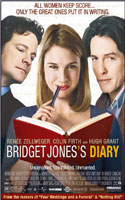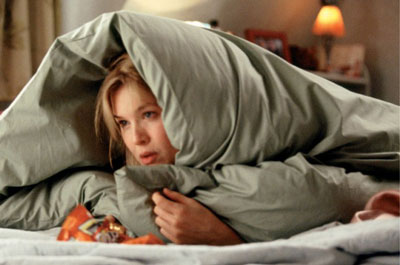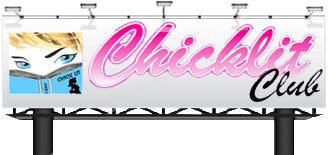MOVIE NIGHT

BRIDGET JONES'S DIARY (2001)
Hearkening back to the book that, in my opinion, started the whole chick lit movement, I'm always surprised when I find someone who doesn't know that Bridget Jones's Diary was based on Pride and Prejudice. A great modern take on a classic, the movie version of Bridget Jones's Diary is nearly as good as the Helen Fielding book. There was some criticism at the time that American actress Renee Zellweger was chosen to play this quintessentially British character. But she does it with such a charming combination of vulnerability and klutziness that the world fell in love with her Bridget, and, to my American ear, she nailed the British accent. We ultimately see that Darcy has been wronged by Cleaver/Wickham. This is when we begin to see him in a different light. As his goodness is revealed, his sex appeal emerges.
Of course, Bridget is the alter-ego of Elizabeth Bennett complete with ridiculous mother and sympathetic father, though without the four sisters. Daniel Cleaver, played by Hugh Grant, is based on Mr Wickham. When I read Pride and Prejudice for the first time, it wasn't immediately obvious to me that Wickham was a cad, but sexy and charming Grant-as-Cleaver leaves us no doubt that this is going to be a bad choice for Bridget. Colin Firth plays Mark Darcy, a spectacularly funny choice on the part of director Sharon Maguire, since he also played Mr Darcy in the BBC version of Pride and Prejudice. (Supposedly, Helen Fielding had Firth in mind when she was writing the book.) However, Maguire understood that Mark Darcy should not be appealing at first, and, just as in P&P, he seems stuffy and priggish at the party where Bridget encounters him. No amount of Austen describing Darcy as tall and handsome makes him seem like he could interest Elizabeth, just as Mark Darcy does not in the least appeal to Bridget.

The plot proceeds similarly in both P&P and in Bridget Jones's Diary, and we ultimately see that Darcy has been wronged by Cleaver/Wickham. This is when we begin to see him in a different light. As his goodness is revealed, his sex appeal emerges. When Bridget/Elizabeth and Darcy/Darcy finally come together at the end of both stories, we are swept away by the romance of it. In the Bridget Jones movie, it is Christmastime, it's snowing, and Darcy stands there telling Bridget that he's come back from America because he forgot to kiss her. I remember the moment when I first saw it in the cinema with my best friend, both of us in an absolute puddle. It's the same feeling I had at the end of Pride and Prejudice when Darcy tells Elizabeth, "If your feelings are still what they were last April, tell me so at once. My affections and wishes are unchanged, but one word from you will silence me on this subject forever." Austen goes on to describe how Elizabeth then ensures him that her feelings have changed, that she, now, belongs to him. There is then a satisfying denouement that we don't get in the film version of Bridget Jones's Diary; however, the moment in the snow is luscious enough. Though some people did not appreciate Fielding ravaging the great classic for her chick lit romp, and others think the film version of Bridget Jones didn't hold up to the book, in this love triangle of film and literature I think all three ended up winning. If anyone could possibly do Pride and Prejudice justice, it's Fielding, and if anyone could do Fielding's book justice, Sharon Maguire did.

Movie reviewed by Georgina Young-Ellis
